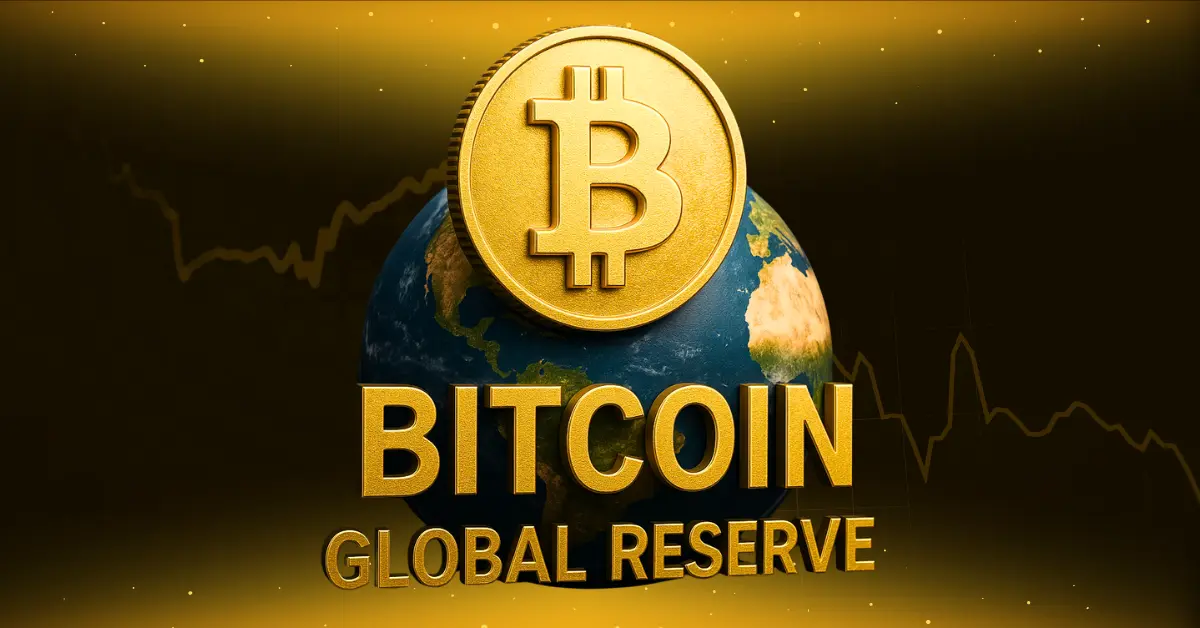
A U.S. debt default could trigger major economic fallout, higher interest rates, job losses, and a weaker dollar. With debt at $36 trillion and a 122% debt-to-GDP ratio, rising costs and political gridlock ahead of the August 2025 ceiling deadline add pressure. Still, the U.S. has never defaulted, and Treasury officials believe it can be avoided with timely action. Looking at the current scenario, Coinbase CEO Brian Armstrong is warning that Bitcoin could replace the U.S. dollar as the world’s reserve currency if America fails to control its spending.
However, so far, Bitcoin has failed to capitalize on the U.S. Debt Spiral. Currently trading around $104,500, BTC is at a critical level rather than surging, even as the U.S. dollar weakens and economic uncertainty grows.
Armstrong took to X this week, voicing support for Bitcoin but expressing concern about America’s financial trajectory. “I love Bitcoin, but a strong America is also super important for the world,” he wrote. “We need to get our finances under control.”
The comments come as the U.S. debt hits a historic high, with fiscal responsibility at the center of political debate. Armstrong warned that if voters don’t pressure Congress to reduce the deficit, Bitcoin could naturally evolve into the dominant global currency.
His warning gains traction as institutional demand for Bitcoin soars, bolstered by its fixed supply and rising reputation as a hedge against inflation.
But Crypto analyst Wendy O believes Bitcoin won’t become a reserve currency due to its high volatility. However, she says it will still be in demand. In her view, a stablecoin is more likely to fill the role of a global reserve currency.
Moreover, the timing couldn’t be more heated. House Republicans are pushing a Trump-endorsed spending bill that extends tax breaks, increases military spending, and cuts social programs. Critics, including six Nobel Prize-winning economists, say it could add another $3 trillion to the national debt if made permanent.
Tesla CEO Elon Musk slammed the bill as a “pork-filled, disgusting abomination,” warning that it could drive the deficit to $2.5 trillion annually.
In parallel news, U.S. lawmakers are exploring Bitcoin as a strategic reserve asset. A bill introduced by Senator Cynthia Lummis proposes that the Treasury accumulate 1 million BTC, which is around 5% of the total supply, to hedge against long-term fiscal instability.
Under the proposal, BTC would be stored in decentralized vaults, funded through existing Treasury assets. Lummis framed it as a modern version of the gold reserve, arguing it could protect the dollar’s value and strengthen national security.
With Trump pushing to make the U.S. a global crypto hub and rising distrust in traditional monetary policy, Bitcoin is inching closer to the heart of America’s financial strategy.
U.S. debt is growing due to high spending, tax cuts, interest payments, and economic stimulus policies.
At $36T and rising, U.S. debt fuels fears of default, inflation, and dollar devaluation worldwide.
Bitcoin remains cautious near $104.5K despite debt fears, awaiting clear policy or default signals.
CoinPedia has been delivering accurate and timely cryptocurrency and blockchain updates since 2017. All content is created by our expert panel of analysts and journalists, following strict Editorial Guidelines based on E-E-A-T (Experience, Expertise, Authoritativeness, Trustworthiness). Every article is fact-checked against reputable sources to ensure accuracy, transparency, and reliability. Our review policy guarantees unbiased evaluations when recommending exchanges, platforms, or tools. We strive to provide timely updates about everything crypto & blockchain, right from startups to industry majors.
All opinions and insights shared represent the author's own views on current market conditions. Please do your own research before making investment decisions. Neither the writer nor the publication assumes responsibility for your financial choices.
Sponsored content and affiliate links may appear on our site. Advertisements are marked clearly, and our editorial content remains entirely independent from our ad partners.
The cryptocurrency market is steady above $4 trillion in total value, with Bitcoin around $124,000…
XRP is trading just above $3.30, gaining more than 9% in the past 24 hours.…
Bitcoin has reached a fresh all-time high of $125,559 on October 5, 2025, with its…
Remittix has become the top token since the start of this quarter, following the launch…
The crypto market arrived in October with positive traction, and investors are once more considering…
The OKB price has exhibited one of the most remarkable rallies in 2025, primarily driven…